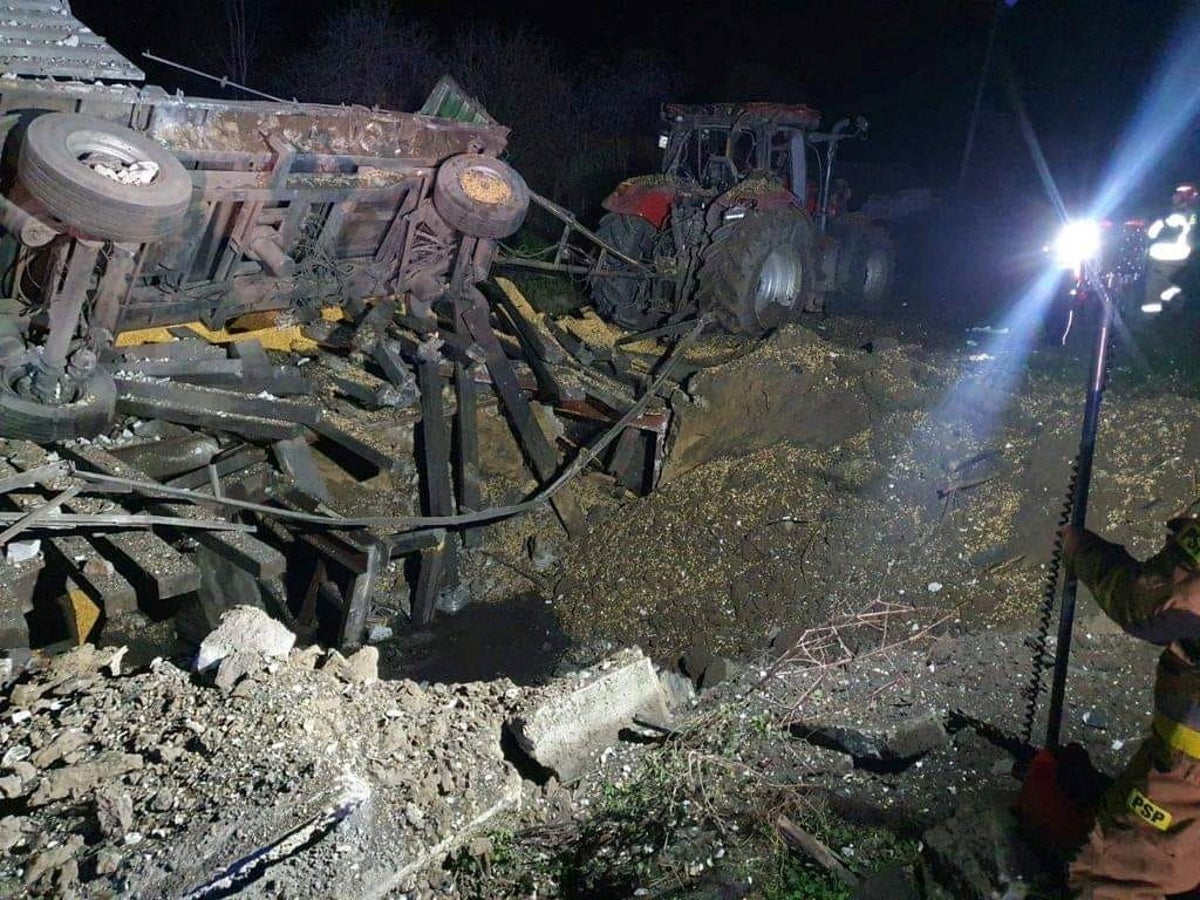
The killing of two people in eastern Poland on Tuesday by a missile fired in the Russia-Ukraine war has caused alarm across the world at the prospect of Nato countries being drawn into the conflict in defence of an ally.
Ukraine is not one of the military alliance’s 30 members, hence Nato’s reluctance to enter the fray militarily since the Russian invasion commenced in February or to implement a no-fly zone over the country, as president Volodymyr Zelensky has repeatedly requested, preferring instead to supply weapons and training only to the Ukrainian defensive effort.
But Poland is a member and the “cornerstone” Article 5 of the North Atlantic Treaty signed by all member states compels them to come to the defence of any of its fellows that come under attack from a foreign power.
Article 5 of that founding treaty, drafted in 1949, states: “The parties agree that an armed attack against one or more of them in Europe or North America shall be considered an attack against them all and consequently they agree that, if such an armed attack occurs, each of them, in exercise of the right of individual or collective self-defence recognised by Article 51 of the Charter of the United Nations, will assist the party or parties so attacked by taking forthwith, individually and in concert with the other parties, such action as it deems necessary, including the use of armed force, to restore and maintain the security of the North Atlantic area.
“Any such armed attack and all measures taken as a result thereof shall immediately be reported to the Security Council. Such measures shall be terminated when the Security Council has taken the measures necessary to restore and maintain international peace and security.”
The article was triggered for the first time in Nato’s history by the US in the aftermath of the 9/11 terror attacks by al-Qaeda in 2001 but we are still a long way from that happening in the present instance, not least because of the uncertainty about the facts on the ground and who exactly fired the rocket in question.
Since the original story broke on Tuesday evening, three US intelligence officials have spoken anonymously to the Associated Press to say that they believe the missile was actually fired by the Ukrainian military as part of an effort to down a Russian projectile aimed at its energy infrastructure.
Polish president Andrzej Duda had sounded the alarm earlier by stating that a “Russian-made missile” had “most likely” killed two of his citizens when it struck a grain store in Przewodow, Lublin, about 3.7 miles from the border with Ukraine.
However, given that Ukraine maintains stocks of former Soviet and Russian-made weapons within its arsenal, including the S-300 air-defence missile system, both lines of argument could be true: it could well have been a “Russian-made missile” but fired by Ukrainian troops.
Mr Zelensky nevertheless accused Russia of a “significant escalation” through the attack while the Kremlin was quick to deny responsibility and accuse the Polish press instead of engaging in a “deliberate provocation”, although that is entirely to be expected.
Warsaw has already launched an investigation to examine the debris in Przewodow and US president Joe Biden has convened a meeting of world leaders at the G20 summit in Bali, Indonesia, for which they already happened to be gathered, with representatives from Britain, Germany, Canada, Netherlands, Spain, Italy and France all in attendance.
Mr Biden was quick to say he felt it was “unlikely” that the missile was fired from Russia, even if it did prove to have been made there, hinting that even someone as tyrannical as Vladimir Putin would not dare to invite the full wrath of Nato’s firepower down upon his beleaguered and ill-equipped soldiers in Ukraine.
When reporters in Bali put the question of Russian responsibility to Mr Biden, he answered: “There is preliminary information that contests that,
“I don’t want to say that until we completely investigate it, but it is unlikely in the lines of the trajectory that it was fired from Russia, but we’ll see.”
UK prime minister Rishi Sunak, also at the summit, likewise expressed “whole-hearted support” for Poland but stressed it was crucial to “establish the facts” before acting.
Nato’s members would obviously be reluctant to commit to Article 5 without first triggering Article 4, which requires a formal consultation between the allies when a signatory state believes its “territorial integrity, political independence or security” is under threat in order to ascertain the facts and calculate the risks involved.
Mr Duda said that it was “highly likely” that his country would request such talks under that article when he addressed the crisis on Tuesday, saying Poland’s ambassador would meet with the North Atlantic Council, Nato’s decision-making body, on Wednesday at its headquarters in Brussels, Belgium.
Article 4 has only been triggered on seven occasions in the alliance’s history, most recently in March when eight members – Bulgaria, the Czech Republic, Estonia, Latvia, Lithuania, Poland, Romania and Slovakia – called for security talks in the early days of Russia’s assault on Ukraine.







